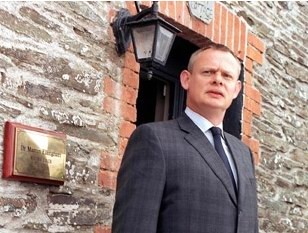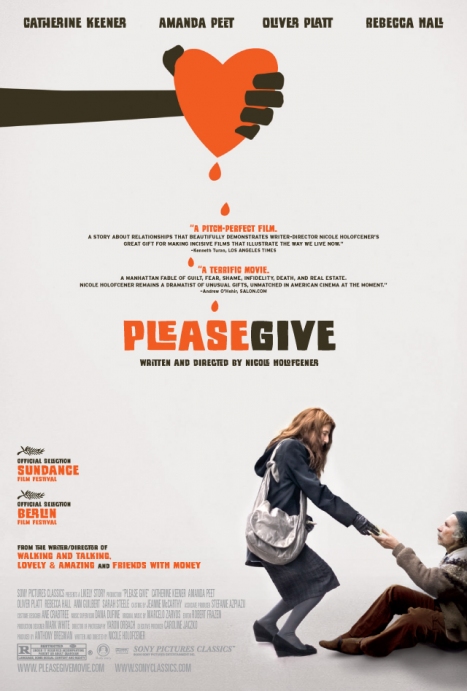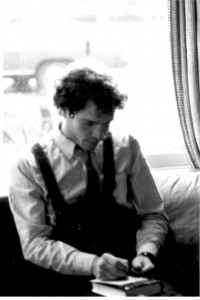13th July, 2010
One of my more infantile habits is to namecheck my friends in my scripts. Almost every character has a name that means something to me, and mostly it’s my way of saying “hi” to someone important to me. It’s something Anthony used to do, god bless his cotton, so it’s not even original; I am merely carrying on a sentimental family tradition.
Lovely, clever, adorable women are often called Sarah, for reasons you might be able to guess, or Louisa after my daughter (e.g. in Doc Martin), or Jane after our college friend who is one of the softest, kindest and best people I know. I make that classic assumption that all Janes are like the Jane I know. (Not that I know only one Jane, but this Jane is my main Jane, if you know what I mean.)
It’s very hard to break out of it. And the flip-side is that a badly-named character can throw you off course when you’re writing. Some characters can or can’t do things purely in virtue of the name they’ve been given. For that reason I will sometimes stop and think for – well, too long – before I christen a character.
When I wanted Martin Clunes’ character in Doc Martin to be more real, more ‘mine’, more like me or my argumentative son, I gave him my surname in anagram form – Ellingham instead of Minghella.
Sometimes it backfires. I have one friend who has noticed that his name is often given to unpleasant characters. It’s true, but no reflection on him; it’s just that his name fits jerks better. Try explaining that to a disgruntled old school chum.
I named the Sheriff of Nottingham “Vaizey,” and only after the deed was done did I remember that there had been a Vaizey at my college in Oxford. We weren’t mates, so my subconscious had probably chosen the name judiciously; or rather, injudiciously: we’ve had some email exchanges lately, in which he revealed that he noticed, and that he drafted a (presumably stern) letter to me, but decided not to send it. I don’t think any writer wants to receive a letter from a barrister about the use of his name. Be especially careful if that barrister is going to go on to become the Culture Secretary. For that reason alone, dear readers, do not try this at home.
Even if you don’t take someone’s name in vain, the fact that your stories are personalised in this way sets people looking. I have a number of friends who think Doc Martin is based on them; one is a doctor called Martin, so you can understand that – except that the show was called Doc Martin before I was hired. Others see a trait or a habit or a hobby in a character, or a turn of phrase, and assume I’m ribbing them. I have found it useless to deny it, even when sometimes several people take the same evidence as proof that a character “really is” them.
In the end of course, all writing is – and should be – informed by experience, and so everybody and every thing springs from some sort of reality – which is why it’s important that us writer-types get out more often.
P.S. Some names are safe even from my childish pen. Dante, my son, has a name it is hard to drop casually into a drama. Gioia and Loretta, my sisters, are probably safe at least until I get somewhere with my film about Puccini. But even in an Italian setting, Edana, my middle sister, is going to have little to worry about. Edana is not an Italian name. It is not really a name at all. Our parents invented it. They just liked the sound of it, so that’s why Edana is Edana.
But, dear Edana, like it or not, you shall go to the namecheck ball, and you can’t blame me for it. You’re in The Archers! You’re young, you’re fit, you’re a fine figure of a girl. The mere sight of you was enough to make heartbroken Pip know she was home, where she belonged. You are, my darling sister, a prize heifer.



